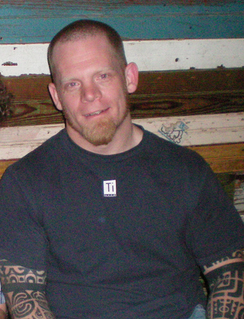A Quote by Friedrich Nietzsche
When somebody dies we usually need reasons for consolation, not so much to alleviate our pain as to excuse ourselves for so readily feeling consoled.
Related Quotes
What we really need is somebody who loves us so much we don’t worry about death, or about [anything for that matter]… We need this; we need this so we can love other people purely and not for selfish gain, we need this so we can see everybody as equals, we need this so our relationships can be sincere, we need this so we can stop kicking ourselves around, we need this so we can lose all self-awareness and find ourselves for the first time, not by realizing some dream, but by being told who we are by the only Being who has the authority to know, by that I mean the Creator.
Buddhist words such as compassion and emptiness don't mean much until we start cultivating our innate ability simply to be there with pain with an open heart and the willingness not to instantly try to get ground under our feet. For instance, if what we're feeling is rage, we usually assume that there are only two ways to relate to it. One is to blame others. Lay it all on somebody else; drive all blames into everyone else. The other alternative is to feel guilty about our rage and blame ourselves.
It is our own pain, and our own desire to be free of it, that alerts us to the suffering of the world. It is our personal discovery that pain can be acknowledged, even held lovingly, that enables us to look at the pain around us unflinchingly and feel compassion being born in us. We need to start with ourselves.
We need a home in the psychological sense as much as we need one in the physical: to compensate for a vulnerability. We need a refuge to shore up our states of mind, because so much of the world is opposed to our allegiances. We need our rooms to align us to desirable versions of ourselves and to keep alive the important, evanescent sides of us.
Some of us have a hard time believing that we are actually able to face our own pain. We have convinced ourselves that our pain is too deep, too frightening, something to avoid at all costs. Yet if we finally allow ourselves to feel the depth of that sadness and gently let it break our hearts, we may come to feel a great freedom, a genuine sense of release and peace, because we have finally stopped running away from ourselves and from the pain that lives within us.
Living Holy Week following Jesus means learning how to come out of ourselves to reach out to others, to go to the outskirts of existence, to be the first to move towards our brothers and sisters, especially those who are most distant, those who are forgotten, those who are most in need of understanding, consolation and help. There is so much need to bring the living presence of Jesus, merciful and full of love!
We have to understand in order to be of help. We all have pain, but we tend to suppress it, because we don't want it to come up to our living room. the most important thing is that we need to be understood. We need someone to be able to listen to us and to understand us, then we will suffer less, but everyone is suffering, and no one wants to listen. We don't know how to express ourselves so that people can understand. because we suffer so much, the way we express our pain hurts other people, and they don't want to listen.









































